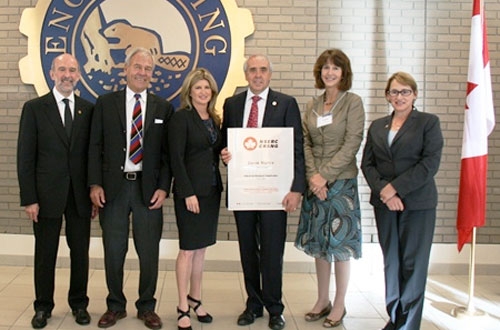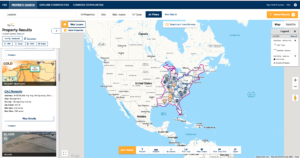University of Alberta opens rail research facility
Written by Jenifer Nunez, assistant editor
The University of Alberta in Canada has launched a new partnership that will support jobs and long-term success in the Canadian rail sector. This new partnership, the Canadian Rail Research laboratory, is a joint initiative between the Government of Canada, Alberta Innovates - Technology Futures (AITF), the Association of American Railroads, Canadian Pacific, Canadian National and the University of Alberta.
The research chair is held by Derek Martin, a professor in the Department of Civil and Environmental Engineering at the University of Alberta. It will conduct research specifically related to ground hazards and winter service reliability, issues that directly impact the safety and efficiency of Canada’s rail network.
“Building a railroad isn’t driving spikes by hand anymore,” said Martin. “It’s about the technology that keeps it operating 24-hours, the maintenance and freight. Essentially, it’s like a pipeline but above ground.”
“The economy remains the Harper government’s top priority and Canada’s railway network is an integral part of our economy, transporting people and goods safely and efficiently across the country and to and from global markets.” said Minister if Public Works Rona Ambrose. “This innovative facility at the University of Alberta will conduct specialized research and educate qualified engineers to meet the future needs of the Canadian rail sector.”
In order to enhance rail safety in Canada, research on ground hazards will examine landslides, rock falls, land subsidence, erosion, as well as snow and ice conditions.
Research related to winter service reliability will include studies of optimal materials, fuels and cold weather engineering, avalanche monitoring and control, response to service disruptions and weather monitoring and predictions.
The Canadian Rail Research Laboratory will receive a total of more than $5 million over the next five years; $1,056,000 from Transport Canada; $1,000,000 from AITF; $500,000 from the AAR; $500,000 from CP; $500,000 from CN and $1,500,000 from the Natural Sciences and Engineering Research Council (NSERC).





